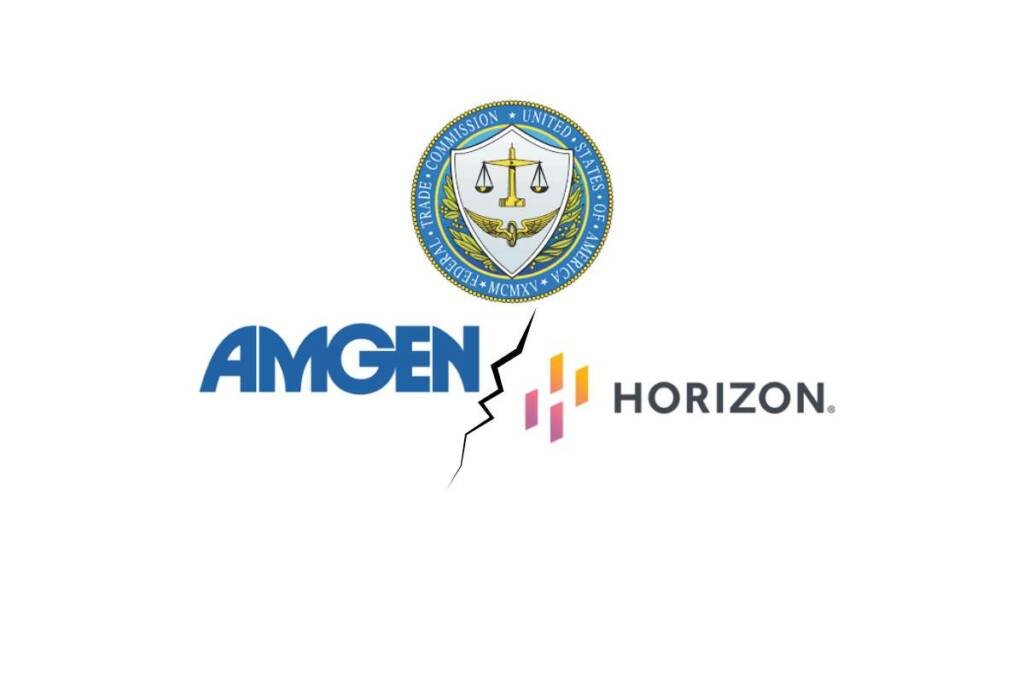In the world of corporate clashes and strategic maneuvers, a legal ballet is unfolding, with the Federal Trade Commission (FTC) and pharmaceutical giants Amgen and Horizon Therapeutics at the center stage. The FTC’s lawsuit to thwart Amgen’s acquisition of Horizon had drawn the spotlight, but now, a momentary pause shrouds the proceedings, as the agency contemplates an alternative path—a resolution that could redefine the landscape.
The FTC’s legal proceedings, aimed at preventing the union of Amgen and Horizon, have momentarily halted, as indicated by a court filing. This intermission in the courtroom dance extends until September 18, allowing the FTC to ponder “the proper resolution of this matter.” This pause finds its origins in the court’s encouragement for the two adversaries to explore a potential settlement—an invitation to seek common ground amidst the legal duel.
Related: Amgen Challenges FTC’s Bid To Block $28B Horizon Deal
This shift in the legal tides arrives about a month after the FTC declared that settlement discussions with Amgen had ceased. It coincides with Amgen’s recent refusal of a preliminary injunction request at the US District Court for the Northern District of Illinois. The legal landscape’s nuances continue to evolve, as intricate as a choreographed performance.
The core of the FTC’s case pivots on the assumption that Amgen’s potential merger with Horizon might lead to the amalgamation of their robust portfolios, offering an advantage over competitors during discussions with payers. However, Amgen adamantly reassures that such bundling will never come to fruition. A legal tango ensues between these contrasting perspectives.
In the midst of this legal choreography, Amgen remains resolute in its intent to seal the deal by mid-December. This steadfastness amidst legal turbulence speaks to the resolve that often marks such corporate duels.
The Amgen saga resonates beyond the confines of courtroom proceedings. It stands as a defining moment for the biopharma arena, representing the FTC’s first direct challenge to a pharmaceutical M&A deal since announcing heightened antitrust scrutiny for substantial biopharma mergers. Industry giants Biotechnology Innovation Organization (BIO) and Pharmaceutical Research and Manufacturers of America (PhRMA) wade into the legal dance as well, offering legal briefs that rally behind Amgen.
BIO and PhRMA paint a canvas of concerns that extend beyond the legal proceedings. They argue that blocking the merger could impede the trajectory of biotech innovation. Their legal harmonies resonate with the belief that established industry players are crucial in nurturing the delicate ecosystem of drug development and commercialization.
In the midst of this legal ballet, a larger narrative emerges. Beyond the individual case, the FTC’s actions cast a shadow on the broader landscape of M&A activities. Each corporate merger now finds itself under the lens of scrutiny, a testament to the far-reaching implications of legal battles in the corporate world.
As the legal performance pauses, the audience holds its breath, anticipating the next twist in this intricate ballet. In this realm where legal narratives intertwine with industry dynamics, the resolution—whatever form it takes—will undoubtedly impact the future rhythm of biopharma strategies and mergers.





























